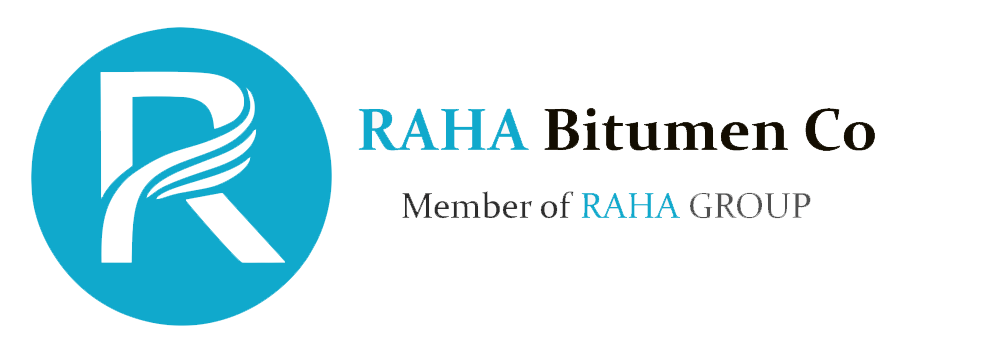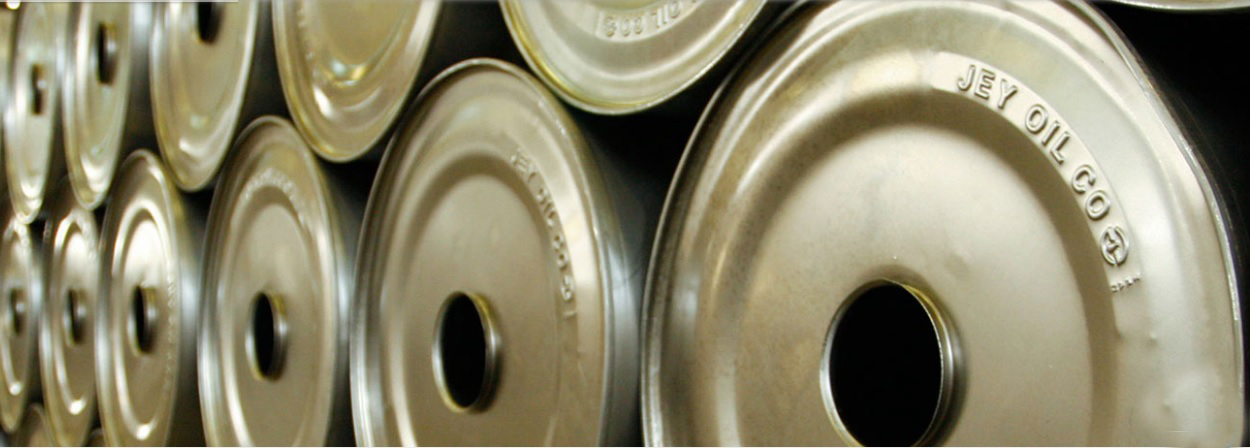
Jey Oil Company

About Jey Oil Company
Jey bitumen is most famous bitumen brand in Asia. Jey Oil owns one of the largest bitumen production plants in the middle east. This refinery constructed by American company and structure of refining is designed for high-quality bitumen from vacuum bottom. Jey Oil Refining Co. produces about 45% of the bitumen of Iran and has made a proper profit during its years of activities. Jey Oil produces different types of bitumen such as Penetration Grade, Viscosity Grade, Performance Grade, Cutback, and Emulsion. At present, Jey Oil Refining Co. and Pasargad Oil Co. administer producing bitumen in Iran, and they collectively produce 3 million tons of bitumen and they are able to produce 4 million tons at maximum.
We supply bitumen from following main producers in the middle east on a long-term contract and constant basis:
Jey Oil Company
Pasargad Oil Company
In order to provide our customers with continuous supply, RABIT benefits from an efficient production planning and inventory control systems which guaranties sufficient stock of Jey Embossed drums, Pasargad Embossed drums, Jey and Pasargad bulk bitumen to be packed in any required packing type.
Why customers mostly prefer Jey bitumen?
Jey bitumen has more demand since analysis of the bitumen has the better result. For instance ductility of bitumen should be minimum 100Cm but Jey bitumen is more than 140Cm and for Asphalt Company there would be the efficiency to use it since no need to add more additive to make ductile bitumen.
Iran’s competitive bitumen market
Hamid Moradi, managing director of Jey Oil Refining Company, talks to TOGY about the bitumen market and anticipated changes as Iran modernizes key refineries, as well as how the company is positioning itself to compete. Jey Oil Refining Company is a bitumen production company with facilities located next to the Isfahan Refinery.
Iran’s competitive bitumen market: Hamid Moradi, managing director of Jey Oil Refining Company, talks to TOGY about the bitumen market and anticipated changes as Iran modernizes key refineries, as well as how the company is positioning itself to compete. Jey Oil Refining Company is a bitumen production company with facilities located next to the Isfahan Refinery.
• On exports and demand: “Almost 65-70% of our total production is exported to destinations ranging from East Asia and the Middle East to certain African countries and in some cases Europe. Out of these, India has the largest bitumen demand, followed by the UAE.”
• On Iran’s refinery upgrades: “After the modernization plan, we expect that the total production of bitumen in Iran will be less than what it is today. From 5 million tpy, it will come down to a maximum capacity of 3 million-4 million tpy.”
Jey Oil Refining Company is a bitumen production company. Its production facility, located next to the Isfahan Refinery, is one of the largest in the Middle East. Established in 2003, Jey Oil today holds a share of 32-33% of Iran’s total bitumen production and trade.
Most TOGY interviews are published exclusively on our business intelligence platform TOGYiN, but you can find the full interview with Hamid Moradi below.
What are Jey Oil Refining Company’s main activities?
Jey Oil Company is a leading company in the Iranian bitumen industry. At our bitumen refinery plant in Isfahan – the largest plant of its kind in Iran – we are producing an average of 1.5 million tpy of bitumen, with a total production capacity of 1.8 million tpy. The total national production in Iran is around 5 million tpy, and Jey’s market share in Iran’s bitumen production and trade is around 32-33%.
Almost 65-70% of our total production is exported to destinations ranging from East Asia and the Middle East to certain African countries and in some cases Europe. Out of these, India has the largest bitumen demand, followed by the UAE.
What are the logistics of exporting bitumen from Isfahan?
Our products are mostly exported in drums. In terms of transport and logistics, the best way to transport bitumen from Isfahan to different export destinations is to pack it in different ways. In Isfahan, we have different packaging methods including drums and also bitumen bags, which are eco-friendly.
In the past, we had some problems with exporting bitumen in bulk because the transportation cost from Isfahan to Bandar Abbas is very high. That is why we established new facilities in Bandar Abbas, and now we have 24,000 tonnes of storage tank capacity there, as well as a production unit that is adding the output to our Isfahan capacity. Our bitumen terminal is the biggest terminal in Iran.
How is Iran’s modernization plan for five of its largest refineries expected to impact bitumen output?
In the oil sector, refineries are targeting production of lighter products, which are more valuable, in the future. Since most Iranian refineries are running with old technologies, they are producing a high volume of heavy products such as bitumen or fuel oil. This is why there is a development plan to upgrade the production facilities of five major refineries across the country to produce lighter products.
Upgrade programmes at different refineries, including the Isfahan Refinery, are in the negotiation stage, with the goal of signing the contracts and securing the finance for these projects. Some of them have already had contracts signed.
For Isfahan, the commercial contract has been signed and negotiations are underway to finalize the financing. The duration of the project could be between three to four years. After four years, of course, the production capacity for heavy products in Iran will be lower than in the current period, including at the Isfahan Refinery.
It is expected that after this upgrading the average capacity of heavy products will be reduced by at least 50%. In spite of this, because of the long-term contract between Jey and the Isfahan Refinery, they will keep supplying feed for bitumen production at least at the rate of 1.3 million tpy.
After the modernization plan, we expect that the total production of bitumen in Iran will be less than what it is today. From 5 million tpy, it will come down to a maximum capacity of 3 million-4 million tpy.

How will this affect Iran’s bitumen export numbers?
Iran is exporting around 3 million tpy of bitumen, which makes us the world’s second-largest exporter. Once implementation of the modernization plan begins, and the refineries start shifting towards lighter production, the amount of bitumen exported will gradually decrease.
In terms of demand and growth expectations, what is your outlook on the domestic market and what is Jey Oil Company’s position within it?
The local market depends strongly on the government and its infrastructure plans, which also involve growth. This year [March 2017-March 2018] we expect a growth of 30% in the local market. Jey is supplying nearly 40% of the domestic market demand.
Considering the new bitumen producers coming to compete into the market, we expect to get a minimum 35% market share in this year and the next. Based on the government budget, during the new Iranian year [March 2017-March 2018] bitumen demand in the local market will reach 2 million tonnes.
How do you assess the level of competition in the domestic bitumen market?
We are currently witnessing the highest level of competition in the market. There are many small private companies that have entered it. It’s a very competitive market both for exports and local [demand]. Overall, this is not a good situation because each company is lowering its prices in order to compete and be able to sell its product.
This does not benefit the company or the country. That is why the main players, such as Jey Oil Company or Pasargad Oil Company, are looking to sit down together and find a solution.
In the region, the Iranian bitumen price is USD 50 less than that of competing markets such as Singapore, South Korea, and Bahrain. It could certainly be higher than this, considering that our bitumen is famous for its high quality, and it is up to us – the market players – to find consensus, set the right price and reach the best possible outcome for all of us.
How is Jey Oil Company investing in R&D to meet different market requirements and standards?
Jey Oil Company has an R&D team. We also have a bitumen pilot plant, which is based on the best technology out there. Our R&D team is working very hard to fulfil the different standards for different market niches. Along these lines, we have moved from the penetration grade to performance grade and now we are supplying these for the construction of Iranian roads, providing a higher standard.
For other markets such as India which use viscosity grade (according to the British Standard), we have developed a different type of product standard. Currently, the only companies that can supply this bitumen grade are Jey Oil Company and Pasargad Oil Company. We are also able to supply bitumen according to the Australian standard based on its own requirements. Moreover, recently we started producing bitumen according to Chinese standard, which is well-known under the names AH 50, AH 70 and AH90.
What is the scope of Jey Oil Company’s partnerships for transfer of technology and access to the latest production equipment?
We have an ongoing joint venture with an Austrian company, Pörner, which is granting us access to the best technology in the world for this industry. We are also producing bitumen in Pörner facilities, which are almost new and are based on the highest international standards. Since 2016, our laboratories have been equipped with the latest technologies out there.
We are also looking to co-operate with well-known trading and logistics companies to close strategic agreements to help our presence in international markets.
What is the company’s mid-term strategy to gain market share both domestically and internationally?
Jey Oil Company is operating based on three different strategies. First, to develop new products based on the requirements of target markets. Our R&D department is working hard to fulfil our customers’ requirements.
The second is logistics. To supply bitumen to different target markets, we should find suitable and competitive bitumen packaging systems in every market. Our third strategy is to keep expanding our strategic partnerships and conclude co-operation agreements in different markets.
Our overall goal is to reach 2 million tpy of bitumen production in the next five years. Of this amount, we aim to keep 35% to supply the domestic market and allocate 65% for exports.
Source: TOGY (The oil & Gas Year)
